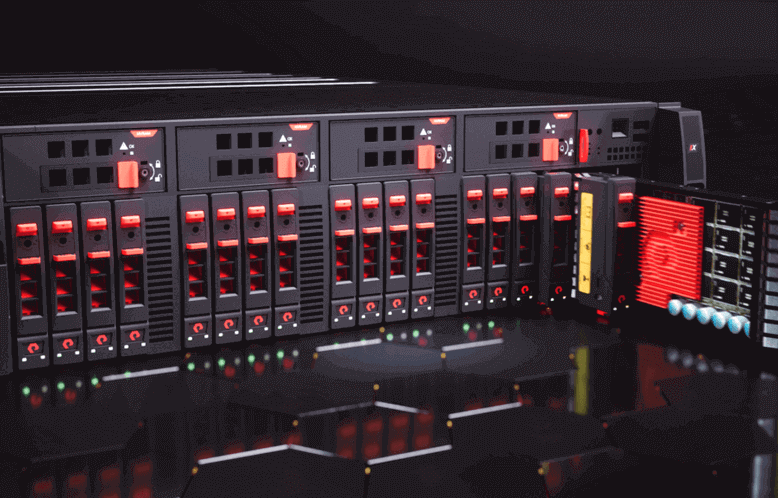Many people are questioning if it’s worth switching to NVMe web hosting now that Non-Volatile Memory Express (NVMe) is becoming increasingly common in data centres and home offices. Isn’t it true that if it ain’t broke, don’t fix it? It depends, as it does in other circumstances. There are only two reasons for most people who use Linux server hosting to be hesitant: cost and return on investment (ROI). Continue reading to learn more about NVMe web hosting and why you should upgrade right away.
What is NVMe Web Hosting?
Let’s take a quick look at NVMe technology and its implications for the digital world.
NVMe Drives
Serial AT Attachment (SATA) devices were nearly always referred to as “solid state drive (SSD).” The limitations of SATA, however, limited SSD capacities. Instead of using SATA, modern NVMe SSDs use the PCI Express (PCIe) interface, which dramatically increases the possible speed of digital storage. NVMe offers greater performance traditionally reserved for devices with the lowest feasible latency:
- Graphics processing units (GPU)
- Sound cards
- TV tuners
NVMe in Data Centers
When it comes to web hosting, NVMe hardware upgrades are handled by the web host’s infrastructure. Server-side improvements save you time by allowing you to serve web pages more quickly. This is already proving to be important in order to support the next generation of breakthrough technologies, such as virtual reality (VR) and the Internet of Things (IoT) (IoT).
This is your chance to delete cache software or Cloudflare to simplify your system management responsibilities or simply conserve disc space.
NVMe Web Hosting Speed
Compared to regular HDD hosting plans, our NVMe SSD hosting plans are 6-20 times faster. For Launch plans and higher, this enormous speed gain allows NVMe web hosting services to gracefully accommodate limitless websites, databases, email accounts, and data storage.
You don’t need to do any additional software configuration to see this boost in performance. Your web applications’ assigned resources are not taken by your server. Your information is not altered in any manner. It would just rely on storage technology’s next generation.
Less Latency
Real-time updates are included in the statement “we want it now.” Customers want web sites to load in under 2 seconds every time, no matter how many filtering choices they change. Otherwise, they’ll leave, resulting in a high bounce rate that hurts your bottom line.
Do you offer live streaming of sporting or musical events on your site? Fans on social media who are more interactive want to chat about the play or verse as it unfolds, not what was just shown but what happened five minutes ago.
Multiple workers can write and amend reports and spreadsheets remotely using collaborative document editing software like CryptPad. Real-time comments and amendments on time-sensitive contracts or requests for proposal (RFP) reduce the amount of time it takes to close a deal.
When everyone’s audio and video are synchronised and properly communicated as quickly as possible, video conferencing with Jitsi Meet and other self-hosted applications runs considerably more smoothly. If your multimedia server can’t match those bandwidth needs, you’ll need to optimise it or utilise a software-as-a-service (SaaS) solution like Zoom.
Better Uptime
The importance of high-availability (HA) cannot be overstated. It’s pointless to have a lightning-fast online store if you’re always experiencing outages. NVMe SSDs have a lesser-known advantage: they are greener than their predecessors. They use less energy and take up less space, making data centre hardware cooling easier.
If you have downtime with your NVMe SSD web hosting, it’s much more likely to be planned, brief, and due to mandatory system-wide upgrades than than nearby customers exceeding resource limitations.
Upgrading is Inevitable
NVMe SSDs are swiftly becoming the standard in commercial and personal data storage solutions, despite the fact that you may not have heard much about them. Have you noticed how PCs have shrunk in size? The reason for this is because of M.2 NVMe drives.
Improved Search Engine Optimization (SEO)
Because of today’s strong demand for technology, website loading speed is a key factor in SEO results. Of course, schemas, XML sitemaps, and SSL certificates are all necessary. However, if your website forces you to watch a five-second loading animation every time you visit it:
Even in related search results, search engines will not rank you highly.
High bounce rates will be reported by your web analytics programme.
The bounce rate will be noticed by search engines, and you will be ranked even lower as a result.
Save Money and Time
Many business owners reach a point where upgrading their web hosting service is the most cost-effective method to improve site performance. For better database performance, many people switch from shared hosting to cPanel-Managed VPS hosting. Some migrate from a VPS to Managed Dedicated Server Hosting for more disk space.
Why convert from shared hosting to a VPS when NVMe Shared Hosting provides the same level of performance without the extra features you won’t use?
Why upgrade from a managed VPS to a dedicated server when you can opt for a NVMe SSD VPS and remove caching software to save space?
NVMe could negate your need for that load balancing setup with extra private servers. A simpler server environment does wonders for you:
- Less downtime
- Less applications to troubleshoot downtime
- More time to work on your feeding bottom line
NVMe Server Hosting is the Future
The lightning fast performance of NVMe web hosting benefits your clients, business team, and SEO analytics. You gain from streamlining your server management tasks and knowing that you’ve made a significant step forward in terms of user experience (UX).
Feel free to check out our Mondoze Global Website for more information about web hosting. If you have any questions, please do not hesitate to contact us.


